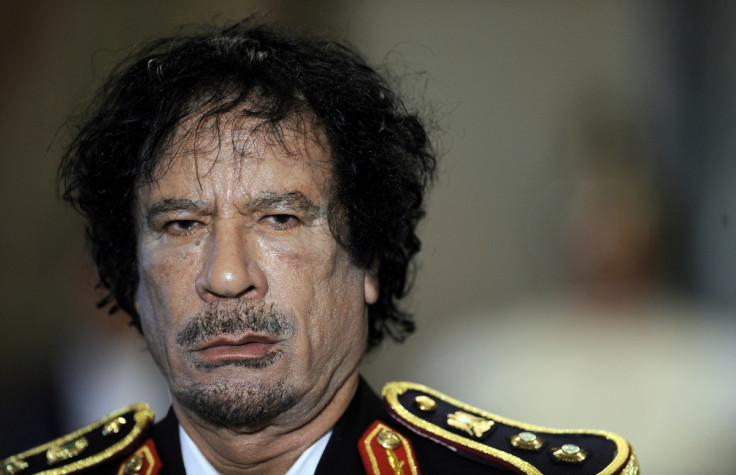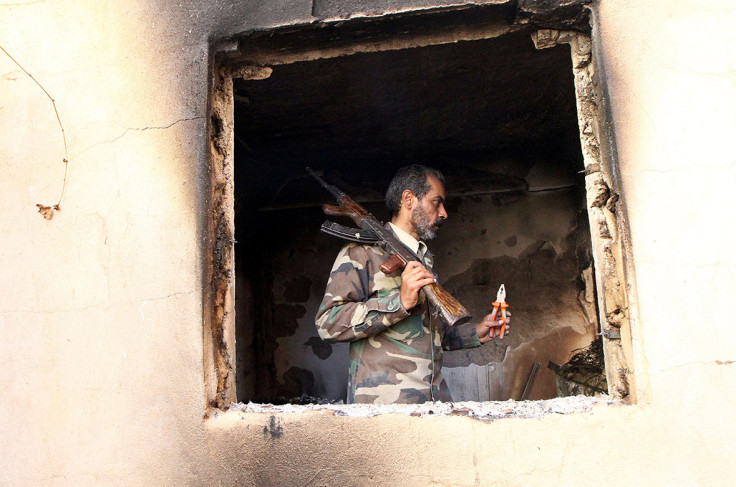Libya five years after the death of 'brother leader' Muammar Gaddafi
The death of the eccentric leader was the defining moment of the country's 2011 revolutionary war.

Five years ago to the day (20 October) Muammar Gaddafi, who ruled Libya for 40 years, was killed by a mob of revolutionaries who dragged him bloodied from a drainage pipe near his home town of Sirte.
The death of the eccentric leader was the defining moment of Libya's 2011 revolutionary war. Gaddafi's dead body was splashed across newspapers around the world. In Misrata, which had stood up to a months-long siege by Gaddafi's forces, jubilant Libyans queued for hours to lay their eyes on the dictator's corpse, kept preserved in a frozen storage unit.
Half a decade later, however, the promise of the Libyan revolution has not been delivered and the spectre of Gaddafi, his legacy of violence and the prospect of a return to military rule haunts the north African nation.
The different factions which united to overthrow the so-called brother leader have fractured and they fractured again along tribal, regional and religious lines. Elections have not delivered democracy and officials have presided over mounting radicalism, car bombings and kidnappings.
In the chaos, a now shrinking Islamic State emirate blossomed on the shores of the Mediterranean. Away from the battlefields of Sirte and Benghazi, the frontlines of Libya's two-year-long civil war, Libyans endure cash shortages, a plummeting dinar and rolling blackouts.
Mohamed Eljarh, a non-resident fellow at the Atlantic Council, told IBTimes UK that it was now difficult to find people who still supported the revolution in its romantic form and political leaders tried not to invoke its legacy. The stark choice appears to be between chaos and military rule.

"I think many people thought after the fall of the Gaddafi regime they would have democracy, they would have services, they would have prosperity and accountability. But after the fall of the Gaddafi regime none of those things happened," he explained.
What is now happening, particularly in eastern Libya, is a slow return to military rule under the auspices of former Gaddafi General Khalifa Haftar.
"He is not a defender of democracy and he is not interested in democracy at all. He comes on board with a very strong argument which is he is the only one that can defeat armed groups,"Eljarh explained.
In a series of eastern Libyan towns and cities in Benghazi, Shahat, Kufra, Ajdabiya, Sidra, and Abiar elected municipal governments have been replaced with military governors and forced disappearances, the hallmark of the Gaddafi regime have returned.
"It is very obvious that people will choose stability every time. This is clear in eastern Libya where we have had major cities, where democratically elected municipal councils have been replaced," Eljarh said.
However, growing dissatisfaction does not equate to a dictatorship under Haftar or a return of the Gaddafi clan, now either imprisoned or in exile. Libya's protracted civil war has raged on because no single group has been able to stamp its authority.
"It is as if we have gone full circle. We have overthrown a dictatorship and then there was fighting and now stability comes first. That was what Gaddafi offered, that's what Saddam Hussein offered and that's what many autocrats in the region offer," Eljarh said.
© Copyright IBTimes 2025. All rights reserved.






















